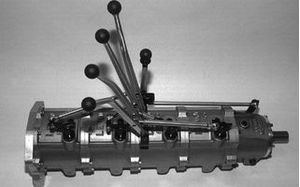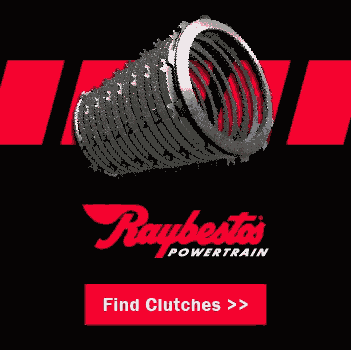Easy Select and Super-Select 4WD Transmission Systems for Mitsubishi SUVs
The list of SUV bestsellers will not be complete without the Japanese brand Mitsubishi. This car manufacturer has long been known for offering reliable and well-equipped cars at an affordable price compared to the main competitors, especially in the SUV segment.
It is important to understand that the off-road
qualities of any car directly depend not only on the engine, but also on the implemented
transmission drive system. In this article, we will consider Easy Select and
Super Select drive systems installed in SUVs produced by Mitsubishi.
Super Select and Easy Select are patented 4WD
transmission solutions installed on Mitsubishi SUVs and pickups. At the same
time, when choosing a car, not all potential owners understand the difference
between these types of transmissions and how to service them properly.
Easy Select
The Easy Select drive system has two cross-axle differentials. One differential is located on the front axle between the wheels, and the second differential is located in the area of the rear axle. There is no inter-center (inter-axle) differential in the transfer case. It is worth noting that Mitsubishi models do not have a front axle, but they still have the differential between the front-wheels.
If the four-wheel drive (4WD) is switched off, the
clutch, connecting the semi-axles with the differential, gets disengaged. In this
mode, the cross-axle front differential is not used at all. The SUV in this
mode operates like a passenger car, no matter whether the Easy Select or Super
Select drive system is installed. Easy Select is a classic part-time 4WD.

Check out Mitsubishi Triton 2017 with Easy Select 4WD
The differential engagement takes place when
the gear selector is shifted to the 4H mode. This mode in Easy Select should not
be used when driving on roads with dry or hard surface, or at high speeds
(usually higher than 50 km/h). Violation of these rules can lead to failure of
the differential or control clutch.
Check out Mitsubishi Triton 2017 with Easy Select 4WD
Taking into account that there is no inter-axle
differential in the Easy Select transmission drive system, when engaging the 4WD
mode, the car becomes less controlled at high speed (it does not hold the road
and makes turns with difficulties). When driving at high speeds (with 4WD) on
the dry road surface, transmission elements wear out much faster due to
overloads and overheating.
The Easy Select all-wheel drive should be
engaged exclusively when driving under severe conditions (off-road, on snowy,
icy or muddy road surface) and at low speeds.
Super Select 4WD
The Super Select 4WD transmission system is
more complex than the Easy Select solution. This solution is also intended for
passenger cars, SUVs and pickups manufactured by Mitsubishi Motors. Initially this
transmission type was installed on sports cars participating in the Paris-Dakar
rally. Since 1992, this transmission has been installed on production cars. There
are two version of the Super Select drive systems available on the market:
Super Select (installed on Mitsubishi L200, Mitsubishi Pajero Sport, Mitsubishi
Pajero Pinin, Mitsubishi Pajero (I and II generations), and on Mitsubishi
Delica minibuses) and Super Select II installed on Mitsubishi Pajero (III and
IV generations).

Generally, Super Select has the same concept of
the four-wheel drive as Easy Select, but it has one significant difference – the
transfer case design is added with center differential paired with a viscous
coupling. This design solution, depending on the load, ensures redistribution
of torque between axles.

Super Select 4WD
design
The viscous coupling operates with the help of a
special fluid. This element is implemented as a cylindrical body with special
discs mounted on splines and a shaft with another package of discs.
These discs have special holes and channels
which allow increasing the viscous friction of the fluid. The viscous coupling
fluid itself is a special silicone liquid with high viscosity. The main task of
the viscous coupling is to transmit the incoming torque with the help of fluid
friction between the discs inside the unit. It should be borne in mind that the viscous
coupling is not used for constant transmission of torque, but for correction of
torque distributed by the differential. The viscous coupling does not operate
when driving in normal conditions.
Informative video on Super Select 4WD
In contrast with Easy Select, the Super Select does
not limit the driver, i.e. it is possible to engage the four-wheel drive and
keep driving in the 4H mode regardless of the road surface. This solution allows
drivers to actively use the car capacities in winter time.
However, drivers must be especially careful
when they drive under harsh conditions (loose snow, mud, sand, etc.) – long-time
driving under such conditions presupposes frequent slippages, therefore drivers
have to separately engage the 4HL mode to block the center differential. This
mode of operation will improve the off-road performance and will reduce risks
of the viscous coupling overheating and its failure.
The interior of a 2007
Mitsubishi Pajero, with the Super Select gearlever
The operation of the center differential is
controlled by a gear sliding coupling with synchronizers. Changing of operation
modes is possible when driving at speeds up to 100 km/h.
The peculiar feature of Super Select and Super
Select II is the chain transmission of torque between the center differential and
the output shaft of the front axle drive.
Drive Control
Usage of
the 4WD system raises causes for many misconceptions spread by owners of
popular pick-ups. Let’s clear it up.

Transmissions
of cars equipped with the Easy Select drive system have 3 modes of operation:
- 2H. Torque is transmitted to the rear wheels, the transfer case operates in standard mode. This mode is engaged when driving on paved roads at different speeds.
- 4H. Torque is transmitted to the front and rear axles. This mode is ideal for country roads. It also can be used on roads with hard surface (at speeds up to 100 km/h). It can be engaged on the move.
- 4L. Torque is transmitted to all wheels through low range gears. This mode is recommended only for off-road driving at low speeds (up to 60 km/h). Engagement of the 4WD in this mode must take place after the car stops completely. Otherwise, transmission parts can be seriously damaged.
SUVs
equipped with the Super Select drive system, have 4 modes of operation for the
transmission. The first two are very similar to operations modes of Easy Select.
So, let’s consider what is different
:

- 4HLc. Torque is transmitted to all wheels through high gearing. The center differential gets blocked to ensure additional traction under severe driving conditions. Used for off-road driving at speeds above 30km/h;
- 4LLc. This mode engages both axles via the low gearing. The center differential also gets blocked. This mode of operation guarantees the maximum amount of traction. Changing between 4HLc and 4LLc is only possible with the vehicle stationary. Used for Off-road driving at speeds below 30km/h.
Low range gear
Cars equipped with Easy Select and Super Select drive systems have a low gear. When the low gear is engaged, the differential in the transfer case gets blocked, while torque is transmitted to the wheels via a special unit named splitter. This mode is engaged in transmissions with Easy Select and Super Select drive systems similarly and implies shifting the gear selector to 4L. The low range gear is necessary when the car moves under extremely difficult road conditions. For example, this gear is engaged during off-road driving, when the driver has to run over sharp climbs, or when towing other car.
Learn more about low
range and high range gears
As a rule, experienced drivers engage the low gear,
if they need to run over a high curb or when driving on rocks, while the car moves
at low speed under heavy loads.
The low range gear allows drivers to avoid a
number of mistakes when there is a risk of getting completely stuck in snow, mud
or sand. This solution can be very helpful for maneuvering.
Summary
Based on all the above, we can say that Easy Select
and Super Select 4WD transmission systems have much in common, but they
significantly differ in operational characteristics. If the first option can be
called a “light” and more universal option in terms of design, then the second
solution is mainly intended for the off-road driving under severe conditions.
In practice, cars with Easy Select are perfect
for day-to-day driving in normal conditions and rare off-road trips. If the
driver plans to frequently use their car under severe driving conditions, then
it’s better to choose the car with Super Select.
The main advantages of Easy Select and Super
Select are the following:
- Structural simplicity;
- Reliability;
- Efficiency in off-road performance.
The main drawback of Easy Select is the impossibility of operating with the engaged 4WD at any speed. However, this problem can be solved thanks to the modification and complication of the design. Drivers of cars with Easy Select have to visit repair shops when they use the 4WD option for off-road driving too often.









